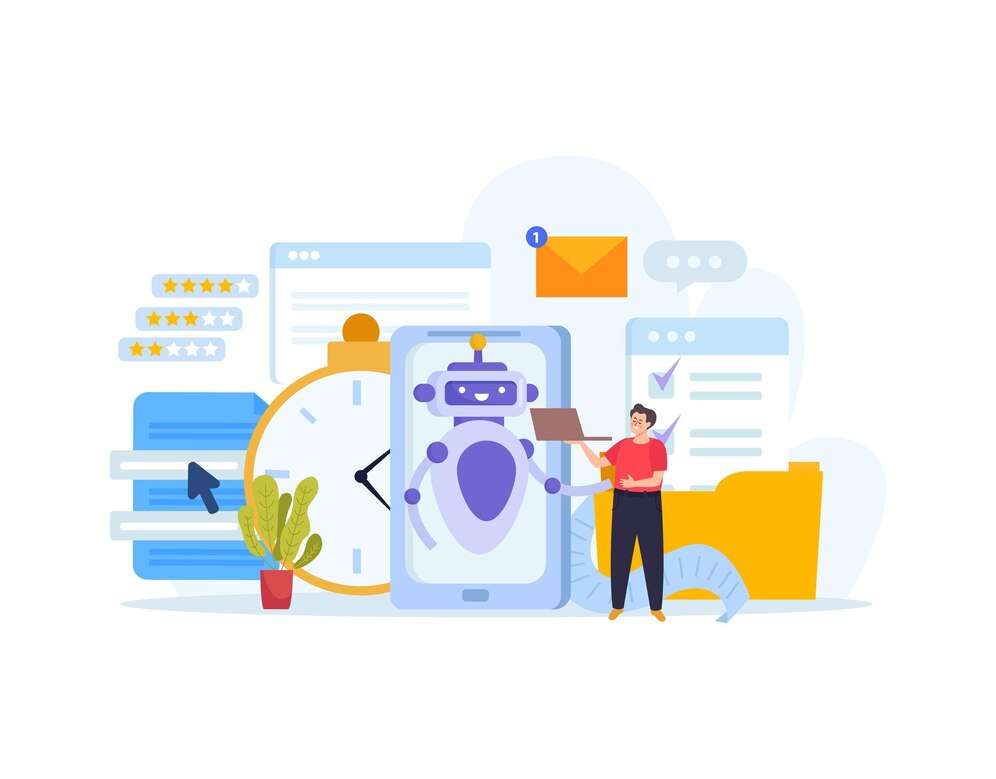By 2025, the development and use of on-demand apps will have undergone a revolutionary change. At the front of this change is artificial intelligence (AI), which is changing everything from user experience to app functionality. AI-driven technologies are opening up new opportunities and raising the bar for app development as sectors depend more and more on on-demand services.Here’s how AI is transforming on-demand app development in 2025.
1. Personalized User Experiences
Personalized user experiences are one of the most important effects of AI in on-demand app development. To provide individualized recommendations and services, AI systems examine user data, such as browsing history, preferences, and behavioral tendencies.
For example, restaurant delivery apps make menu recommendations based on previous orders or dietary requirements, while ride-hailing applications can forecast preferred routes or journey durations. Customer loyalty and user happiness are increased by this degree of customization.
2. Enhanced Efficiency with AI-Powered Automation
AI is automating processes in on-demand apps to simplify operations. AI technologies are currently used to handle tasks like order processing, customer service, and driver allocation, which decreases human interference and boosts productivity.
For instance, chatbots driven by AI instantly respond to customer inquiries, fixing problems without the need for human intervention. Furthermore, logistics automation guarantees optimal resource allocation, reducing operational expenses and delays.
3. Advanced Predictive Analytics
For developers of on-demand apps, predictive analytics made possible by AI is revolutionary. AI can predict demand patterns by examining past data and present trends, allowing companies to make appropriate preparations.
Predictive analytics is used by ride-hailing companies to predict peak times and place more drivers in locations with high demand. Similar to this, AI insights can be used by supermarket delivery applications to manage inventory and guarantee that necessary supplies are always available.
4. Real-Time Decision Making
AI makes it possible to make decisions in real time, which enables on-demand apps to quickly adjust to shifting conditions. AI is used, for instance, by ride-sharing apps to dynamically modify prices in response to demand, traffic, and driver availability.
By offering prompt and relevant solutions, this flexibility not only increases operational efficiency but also improves the user experience. AI-driven real-time decision-making is crucial in a time where rapid gratification is essential.
5. Robust Security and Fraud Prevention
Security is a primary concern for on-demand apps since they manage private user information and financial activities. Real-time fraud detection and prevention via AI-powered systems is improving security.
Machine learning algorithms keep an eye on transaction trends in order to spot irregularities like illegal access or strange payment patterns. AI provides consumers with a secure and reliable platform by anticipating and resolving possible risks.
6. Intelligent Route Optimization
AI’s smart route optimization is transforming delivery and logistics. By assessing elements like traffic conditions, weather, and delivery priority, AI systems calculate the most effective routes for drivers.
This feature lowers operating expenses and fuel usage in addition to delivery times. AI-driven route optimization is a huge benefit for industries like food and e-commerce that depend on on-time delivery.
7. Voice and AI-Driven Interfaces
As AI advances, voice-activated technologies are becoming more and more common in on-demand apps. These days, apps incorporate functions like voice search, order placing, and navigation to provide users with a hands-free experience.
These speech interactions are smooth and simple due to natural language processing (NLP), which increases the accessibility of on-demand apps for a wide range of users. Voice interfaces driven by AI will be a standard feature by 2025 rather than a luxury.
8. AI-Driven App Development
AI is redefining the development process in addition to changing how apps work. The time and effort needed to develop an app is being decreased by AI technologies that automate processes like coding, debugging, and UI/UX design.
AI-powered development tools, for instance, can create prototypes and spot possible bugs, freeing up engineers to concentrate on improving the functionality and performance of apps. Businesses gain a competitive edge because of this expedited method, which speeds their time to market.
9. Scalability and Adaptability
For on-demand apps, AI-driven solutions offer unmatched scalability. AI systems can easily adjust to growing user bases, handling higher demand without sacrificing functionality.
AI ensures that on-demand apps stay dependable and effective at any size, whether it’s managing thousands of taxi requests at once or managing an increase in supermarket orders over the holidays.
10. Sustainability Through AI
By 2025, sustainability will be a major concern, and AI will be essential to making on-demand apps environmentally sustainable. AI systems are assisting companies in achieving environmental objectives by lowering carbon footprints and streamlining delivery routes.
Certain applications even incorporate carbon offset schemes, enabling users to support environmental projects. On-demand applications can draw in eco-aware users and aid in the fight against climate change by emphasizing green behaviors.
Conclusion
In 2025, AI will undoubtedly change the on-demand app development market. AI-driven solutions are establishing new standards in the business, from improving user experiences to optimizing processes and guaranteeing security.









